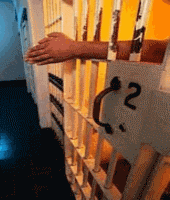Guest Writer
Guest Writer's Latest Posts

UK’s internet industry worth £100bn
 (The Guardian): The internet is worth £100bn to the UK economy, more than 7% of national income, according to a report out today. If it were an industry in its own right, the internet would be more than twice as large as the UK hotel and restaurant market and nearly as big as the financial services sector, which accounted for 9% of GDP in 2009, the study says. The findings come in a report for Google, the internet’s most successful company. The study, by Boston Consulting Group, US consultants, places a value on the UK internet market for the first time. BCG partner Paul Zwillenberg, one of the report’s authors, said the internet is giving UK companies access to international markets and allowing them to generate "astounding" growth. The report finds that British consumers’ willingness to shop online was powering the internet’s expansion.
(The Guardian): The internet is worth £100bn to the UK economy, more than 7% of national income, according to a report out today. If it were an industry in its own right, the internet would be more than twice as large as the UK hotel and restaurant market and nearly as big as the financial services sector, which accounted for 9% of GDP in 2009, the study says. The findings come in a report for Google, the internet’s most successful company. The study, by Boston Consulting Group, US consultants, places a value on the UK internet market for the first time. BCG partner Paul Zwillenberg, one of the report’s authors, said the internet is giving UK companies access to international markets and allowing them to generate "astounding" growth. The report finds that British consumers’ willingness to shop online was powering the internet’s expansion.

Never Again?
Haverford College, my alma mater, went coed in 1980. This was considered a bold and controversial move at the time, but one that the school embraced as necessary for the way forward as an institution of higher learning.
Shortly after this change in admission policy (between 1980-1981), a young female freshman found herself intoxicated at a campus party. The degree of her intoxication is hard to ascertain and has been debated many times, but the reality is that it should never have mattered. Given her state, some older male upperclassmen saw what they thought to be an opportunity. One began to flirt with the girl, whom he then ushered to a more “private” room, and one by one this group of young men raped this young woman repeatedly. The rest of the story follows like the script from a cliché Lifetime film: she was “drunk”, female and Puerto Rican so clearly she must have asked for it; the boys were “good and upstanding” and said she consented; the situation became their word versus her’s, and she is said to have left the school before her freshman year was over.
Google it as you may, you will not find this story posted on the web. It is also not the administration of the school that makes new students aware of its existence and only a handful of professors choose to share it with their classes. It is the student body, year after year, generation after generation, who keeps its memory alive, tying our beloved school’s own sordid past with the ongoing efforts to eliminate violence against women from happening on our campus, our community and our world.
Many argue that Cayman is at a crossroads and that we need to decide, here and now, what path we will choose. The truth is that the choice has already been made. The fork in the road has long passed, and this is the path of complacency.
This is not a choice made solely by our leadership — political, religious and private sector — though they have had a role to play. It is not even solely our, the people’s, decision via our failing to hold said leadership accountable when, through their words and deeds they perpetuate the problem. It is a choice that we make, loud and clear, through our inaction and silence. In other words, the choice is not made “for” us but “by” us.
Do not misunderstand: there certainly are those among us who try. Yet year after year they find themselves preaching to the converted. Year after year they find themselves listening to the same empty promises, the same grandiose statements, watching the same show. They struggle to keep the fight alive, quietly on a day to day basis, but more loudly one month or even one day of the year when it is “acceptable” or at least convenient for the community to turn its attention to one particular cause. Our excuse is that there are, after all, “too many issues” and to consider each often is simply too overwhelming and depressing.
The cost of apathy is not unfamiliar. Acts of unspeakable violence have touched us all, deeply, but while our memory is long our outrage is short. When we lost Estella, for we all lost Estella in some way large or small (even those who could not claim her as a close personal friend), we found, albeit briefly, our voice and proclaimed to all those who would listen: “Never again!”.
Yet two years later we find ourselves here, choosing silence once more. We have added Sabrina to our list of lives hijacked, and countless other assaults have been reported steadily since. The echoes of a community united in grief and outrage fades.
The family and friends of those women who lost their lives will never forget their loss, and neither should we.
I called the Women’s Center at Haverford this week to find out from a student there if she knew the story. She did. She said it was told to all freshmen by their student leaders as part of the first week “path” activities which focuses on campus life and includes sessions on sex, sexuality, sexual assault and rape. She will be graduating in 2012, and there are no words to convey just how proud I felt of my Haverford community for keeping its memory alive.
Ten years since my graduation from that very institution I can finally understand the importance of this story, how it is told and by whom. It defines us. It defines us as a group of people who own our history in its totality, triumph and loss, rights and wrongs, in an effort to ensure that we play a part in making a better future for those who come after us.
Today, as a community, we, the residents of the Cayman Islands, are defined by our silence.
Silence is a choice. Left unchecked, unquestioned and unbroken it turns certainty (“Never again!”) into doubt (“Never again?”) and then the norm (“Yet again”).

Haiti: Cholera slows but fears of spread remain
 (BBC): Tens of thousands of people in Haiti are still threatened by an outbreak of cholera despite some signs that the epidemic is stabilising, the UN says. UN humanitarian co-ordinator in Haiti Nigel Fisher said the UN was preparing for a wider outbreak although there were no new signs of it spreading. The Haitian government earlier said that only six new deaths were reported in the past 24 hours. A total of 259 people are now known to have died from the disease. Three hundred new infections have been recorded, taking the total to 3,342, Haiti’s health ministry said. "This is an extremely serious situation and based on experience with epidemics elsewhere it would be irresponsible to plan for anything but a considerably wider outbreak," Mr Fisher said on Monday.
(BBC): Tens of thousands of people in Haiti are still threatened by an outbreak of cholera despite some signs that the epidemic is stabilising, the UN says. UN humanitarian co-ordinator in Haiti Nigel Fisher said the UN was preparing for a wider outbreak although there were no new signs of it spreading. The Haitian government earlier said that only six new deaths were reported in the past 24 hours. A total of 259 people are now known to have died from the disease. Three hundred new infections have been recorded, taking the total to 3,342, Haiti’s health ministry said. "This is an extremely serious situation and based on experience with epidemics elsewhere it would be irresponsible to plan for anything but a considerably wider outbreak," Mr Fisher said on Monday.

An unheeded warning
There were many people who raised the alarm about the plight of the country’s most vulnerable in the wake of the constitutional compromise made over section 16 and the right to non-discrimination. Not enough people listened, however, and as the HRC and Equality Cayman warned, one year after the implementation of the constitution legislation regarding people with disabilities is a long way off.
The immovable intolerance of the church representatives over their objection to any kind of rights being given to homosexuals or transgenders was so powerful they managed to ensure that many others with varying degrees of vulnerability would not have the right to be free from discrimination either.
It probably comes as no surprise that more than eighteen months after the legislative sub-committee’s report was given to government no proposed legislation to protect the disabled has materialized.
We were warned that this is exactly what would happen and why the Cayman Islands Bill of Rights needed a powerful anti-discrimination clause – government simply could not be trusted to pass the necessary meaningful legislation.
The Human Rights Committee and Equality Cayman in their campaign to have section 16 apply to all areas of public life were wiser than the rest of us. They knew that the government would continue to drag its feet when it comes to implementing real and far reaching legislation that could genuinely create a fairer and more equitable society for those suffering both physical and mental disabilities.
The implementation of the Bill of Rights, which forms part of the Cayman Islands Constitution 2009, in two years time will only protect those with disabilities in the parameters of the areas covered by the Bill of Rights, such as the right to a fair trial, but it won’t give the right to have wheelchair access to the courtroom.
There are so many areas of public life denied to those with mental and physical disabilities and an opportunity was presented with the implementation of the Constitution but because of outdated prejudices and bigotry over sexuality the moment was lost.
The irony, of course, is that those who profess to care for the weak and the vulnerable, the ones who teach the lessons of love and compassion and selflessness from the pulpits every Sunday, are the ones that have condemned thedisabled to be at the mercy of fickle political administrations.
Their homophobia and obsession with sexual sin has brought us to this point where, at the end of the first decade of the 21st century, the disabled in Cayman are not much better off than they were at the end of the first decade of the 20th.
Governments can never be trusted to get to grips with legislation that isn’t a big vote winner or income generator, especially in difficult economic times. The chance was there to force the government’s hand to enact legislation to protect the disabled with section 16 in the Constitution – the chance to demonstrate that the people cared enough to enshrine rights for those who are the most vulnerable in the highest law of the land.
But the moment was lost and because the church was so repulsed by the idea of two people, who might love each other but happened to be of the same sex, having an official union of some kind they were prepared to sacrifice the elderly, the sick, women, children and, of course, people with disabilities.
Some time ago the charismatic and most definitely Christian Arch Bishop Desmond Tutu gave an interview with the BBC in which he lamented the church’s obsession with people’s bedroom habits and in particular homophobia. He pointed out that the church as an institution seemed to care less and less about the incredible inequalities in the world and the desperate plight of the poor and vulnerable. He said its leaders spoke little against a structural system that allowed two thirds of the world’s population to live in abject poverty but it ranted and raved about gay marriage and homosexuals being ordained constantly.
Here in the Cayman Islands the church’s protest against section 16 was strongly linked to homophobia. The irrational and illogical obsession with the issue of sexuality has landed us here with still no protective legislation for those that need it most and no real protection in the Constitution either.
Perhaps the church could now at least try and redeem itself by a supporting a campaign to get the necessary legislation passed to protect those which it exposed. After all we can live in hope.

Death toll rises in the Philippines from Typhoon Megi
 (CNN): The death toll in the Philippines from Typhoon Megi has climbed to 11, as the powerful storm moved away from the country. According to civil defense officials, four people died in Pangasinan province: Three were killed by a falling tree, and the fourth by lightning. Three more died in a storm surge in Isabela province, and one person drowned while trying to cross a river in Nueva Ecija province. Additionally, the National Disaster Risk Reduction & Management Council reported that one person drowned in the town of Cagayan, one was killed by a falling tree in Kalinga province, and one was killed by another tree in the city of Baguio.
(CNN): The death toll in the Philippines from Typhoon Megi has climbed to 11, as the powerful storm moved away from the country. According to civil defense officials, four people died in Pangasinan province: Three were killed by a falling tree, and the fourth by lightning. Three more died in a storm surge in Isabela province, and one person drowned while trying to cross a river in Nueva Ecija province. Additionally, the National Disaster Risk Reduction & Management Council reported that one person drowned in the town of Cagayan, one was killed by a falling tree in Kalinga province, and one was killed by another tree in the city of Baguio.

Would Jesus be “other” in the Cayman census?
If Jesus, the Jewish man, were living in the Cayman Islands today, do you think he would have a problem being subjected to the “Other” category of religion on the Cayman Islands Census form? When the census taker came to our home last night, we found it most surprising that Judaism was not listed among the 14 entries of religions in the Cayman Islands.
It is embarrassing and shameful for educated Caymanians to note that a religion that has been around for 5771 years – long before most of the fourteen religions that are noted on the census form – was omitted, especially since several of those religions are newcomers to the Cayman Islands.
It is awkward and strange that a country that purports to be educated and a part of the modern world would omit a significant portion of its own population that has contributed greatly to these islands’ historic culture, development and sustenance from the earliest of times. Not only are Jews a vital presence in these islands today, but many Caymanians can find their Jewish ancestral roots deeply buried in the soil of the Cayman Islands. From its inception to this present day, Jews have contributed, and continue to contribute, significantly to the social, cultural, economic and religious fabric of these islands and have earned a place to be respectfully recognized on our census form.
We do not pretend to speak for the total Diaspora of practicing Jews in the Cayman Islands community, but we, as individuals, are extremely disappointed with the way the Cayman Islands census was developed and released to the public for response, especially after the lengthy travail the Cayman Islands recently experienced in writing our current Constitution and the Bill of Rights.
While we have the highest regards for Christianity and all peoples, regardless of their religions, Judaism did not come from Christianity, but Christianity had and has its roots in Judaism and the Old Testament. To be subjected to the “Other” category in the census questioning of religion is distasteful, considering that this census asks such personal and vital questions about financial status, ethnicity, education, family structure, possessions, etc. As members of the Cayman Islands Jewish community, we found having to respond as “Other” to the Cayman Islands Census not only perplexing and shocking, but disappointing and shameful.
Here on Cayman Brac, Temple Beth Shalom stands out as a beacon of light and humanity that Judaism has been, is, and will be an integral part of the Cayman Islands that honors God and proclaims justice for all of God’s people.
Anonymity and omission can be an awful way of discounting and ignoring. Was this an innocent act of omission, or ignorance on the part of the census questionnaire writers, or a blatant act of ommission, that the Jewish community of the Cayman Islands is relegated to the “Other” category on this vital census document? We are hopeful that it is the first and not the last and hope to see an amended census questionnaire provided by the Cayman Islands Government.

Evolution and Christianity
The majority of people today think that evolution and Christianity are incompatible. Many unbelievers think that science has proved Christianity “wrong”, and consequently just as many Christians refuse to believe in evolution, even though it is taught to their kids in school. Amazingly, both parties are blind to the facts: evolution and Christianity are remarkably harmonious.
In what follows, we will show Christians how to understand evolution and show unbelievers why Christianity is a rational and logical modern day religion.
When we look at the scientific theory of evolution alongside the “7 Days” creation story in Genesis we see that they are very similar. First of all, there is no need to interpret the “7 Days” as literal days. Everyone who reads their Bible knows you very often read it allegorically. Which makes sense because to read allegorically is to read spiritually; i.e. to find the meaning behind the words. Both evolution and the Bible show us that the universe evolves towards higher forms of life, meaning it moves towards God, who is life.
Let’s begin.
At the very beginning, as Science tells us, a tiny ‘singularity’ exploded and the universe came into being with a magnificent bang. The “Big Bang” was the beginning of time and space. Genesis agrees, saying that on the first day “God said, “Let there be light,” and there was light” (Genesis 1: 3).
Scientists tell us that millions of years later, the earth was formed by probably rolling out of our sun, and began spinning around the star. The earth was hot for a long time, but over millions of years a hospitable atmosphere was eventually formed, as rains fell upon the earth creating rivers, lakes, and oceans. On the third day God said, "Let the water under the sky be gathered to one place, and let dry ground appear" (Genesis 1: 9). The earth was now a water-bearing planet, and was ripe to give fruit.
Before long (or indeed, after a very long time) the very first forms of life appeared on earth. It was very simple life; bacteria life. Over the course of millions and millions of years, this bacteria life had evolved into a more complex thriving plant kingdom. On the third day God said, "Let the land produce vegetation: seed-bearing plants and trees on the land that bear fruit with seed in it, according to their various kinds." (Genesis 1: 11).
Then evolution tells us that millions of year’s later, life advanced into even higher forms, and all sorts of animal species appeared on the earth. On the fifth day God said, "Let the water teem with living creatures, and let birds fly above the earth across the expanse of the sky" and "creatures that move along the ground, and wild animals, each according to its kind." (Genesis 1: 20 – 24).
Finally (200,000 years ago) evolution tells us that Homo sapiens, persons like you and me, appeared into this world. On the sixth day God said, "Let us make man in our image, in our likeness” and “in the image of God he created him; male and female he created them” (Genesis 1: 26 – 27). Last, according to the time scale of both evolution and the Bible, human beings came into existence, the most intelligent and sophisticated of all life forms to date.
So we see that evolution is actually found in the very first page of the Bible. I often wonder why so many fail to see that. Christians should take pride that evolution is found in the Bible because it shows the genius of the author of Genesis, who, despite living three thousand years ago, shows remarkable insight into the creation of the world.
And we also see that both Scriptures and evolution show that the earth evolved toward higher forms of life: from stars, to plants, to animals, to humans. The universe definitely evolves towards more consciousness and awareness. Stars cannot be considered alive, but plants are alive. Animals are more alive (conscious) than plants, as evidenced by their wide range of instinct and spontaneity. Human beings are even more alive (more conscious) than animals: we can travel into space, and unlock the mysteries of the atom.
And yet the fundamental question that evolution poses for us is: how did all of life, including persons like you and me, evolve from that tiny “singularity” so long ago?
And it is precisely this question that Christianity answers more satisfactorily than atheism or agnosticism. The most popular answer by atheism and agnosticism is that it happened “by chance.” To me, that is intellectually unsatisfying, for science has revealed to us that there are determined reasons for everything in the universe. Furthermore, physics tells us that there are causes and effects, and that an effect must equal its cause. This means that if life (the effect) appears in the universe, it is because it was present in the very beginning (the cause). And this is what Christianity (and Islam and Judaism, for that matter) maintain: that God (who is life) is the First Cause – the reason life ever appeared in the universe at all. Thus, despite popular belief, an evolution towards higher forms of life is the clearest evidence for the existence of God.
Now, of course, atheists and agnostics might say they “don’t know” how life and persons appeared in the universe, which is a fair enough answer, but it is still not more logical than the Christian answer. Whereas atheism and agnosticism lack a proper general interpretation of the universe, Christians can at least explain the physics of evolution.
Finally, I would like to point out to Christians what evolution means for their belief about heaven and the resurrection. Because the universe moves towards higher forms of life and consciousness, and God is life and consciousness, we see that what is actually happening is that God is uniting the universe to Himself. This is why the universe moves towards higher forms of life and consciousness: God is attracting it. Over millions of years, God has lifted from the depths of nothing the magnificent living structure of the biosphere, with the intention of uniting it to Himself. “My Father is at work till now, and so am I” (John 5: 17). This simply means that the end of evolution (of which humanity is at the forefront) is what Christians know as the “resurrection,” or “heaven;” when God is “all in all.”
Christians need not be afraid of science because science is a search for truth and God is truth. Christians should look to science for answers about their faith. Christians can be comforted by the fact that their faith is logical and rational. Furthermore, when a Christian does not trust science, they thereby close the door on potential people who might be interested in Christianity but cannotaccept a faith that distrusts science. Yes, human beings evolved from star-dust, but did you not know that “out of these stones God can raise up children for Abraham” (Luke 3: 8) and that “you are dust, and unto dust you shall return” (Genesis 3: 19)? Modern day science can show Christians clearer ways to envision doctrines such as the Trinity, the Body of Christ, Adam and Eve, Heaven and Hell, but we will have to leave that discussion for another time.
I’ll simply end by saying that if I had to believe that evolution was not true, I could not be a Christian. But if I had to believe that Christianity was not true, I could not understand evolution.

UK university tuition fees may double
 (The Guardian): The business secretary, Vince Cable, is struggling to stem the first serious revolt within the Liberal Democrat party since the formation of the coalition after he backed a doubling of university tuition fees. Cable told the Commons that he endorsed the "main thrust" of Lord Browne’s review of tuition fees, published earlier in the day. In doing so, Cable reneged on an election promise to abolish tuition fees – a promise made by all Liberal Democrat MPs. Browne’s recommendations mean that tuition fees could double from the autumn of 2012, and even go higher to as much as £12,000. Browne said there should be no formal cap, but he expected the average cost of fees to be £6,000 a year.
(The Guardian): The business secretary, Vince Cable, is struggling to stem the first serious revolt within the Liberal Democrat party since the formation of the coalition after he backed a doubling of university tuition fees. Cable told the Commons that he endorsed the "main thrust" of Lord Browne’s review of tuition fees, published earlier in the day. In doing so, Cable reneged on an election promise to abolish tuition fees – a promise made by all Liberal Democrat MPs. Browne’s recommendations mean that tuition fees could double from the autumn of 2012, and even go higher to as much as £12,000. Browne said there should be no formal cap, but he expected the average cost of fees to be £6,000 a year.

Body-enhancing underwear gives men a boost
 (The Telegraph): For decades women have been sold clothes that promise to flatter their appearance subtly, from corsets to padded bras. And now men are being offered the same by the high street chain’s Bodymax collection. The £15 “bum lift” underpants promise to raise the posterior by a fifth thanks to seam-free tailoring, while the £10 “frontal enhancement” pants claim to result in a 38 per cent “visual enhancement in size” as a result of an “integral shelf”. The new pants are already available in selected stores and online, and will go on sale nationwide from Friday, October 15. They are the follow-up to M&S’s Bodymax vests, designed to enhance a six-pack.
(The Telegraph): For decades women have been sold clothes that promise to flatter their appearance subtly, from corsets to padded bras. And now men are being offered the same by the high street chain’s Bodymax collection. The £15 “bum lift” underpants promise to raise the posterior by a fifth thanks to seam-free tailoring, while the £10 “frontal enhancement” pants claim to result in a 38 per cent “visual enhancement in size” as a result of an “integral shelf”. The new pants are already available in selected stores and online, and will go on sale nationwide from Friday, October 15. They are the follow-up to M&S’s Bodymax vests, designed to enhance a six-pack.

UK prisoners to be forced to work for their keep
 (The Independent): Prisoners will no longer live a life of "enforced, bored idleness" and instead be forced to work to pay compensation to their victims, Ken Clarke said today. The Justice Secretary said he wanted prisons to become "tough places of hard work and reform" and ensure more private firms are brought in to rehabilitate offenders on a payment by results system. Too many prisoners existed in a system where getting out of bed was "voluntary" and instead they should work nine to five jobs to gain a trade or skill, he told activists at the Conservative Party Conference in Birmingham. Mr Clarke wants private firms to create the jobs for criminals and is even looking at the possibility of creating purpose-built workplace prisons.
(The Independent): Prisoners will no longer live a life of "enforced, bored idleness" and instead be forced to work to pay compensation to their victims, Ken Clarke said today. The Justice Secretary said he wanted prisons to become "tough places of hard work and reform" and ensure more private firms are brought in to rehabilitate offenders on a payment by results system. Too many prisoners existed in a system where getting out of bed was "voluntary" and instead they should work nine to five jobs to gain a trade or skill, he told activists at the Conservative Party Conference in Birmingham. Mr Clarke wants private firms to create the jobs for criminals and is even looking at the possibility of creating purpose-built workplace prisons.
